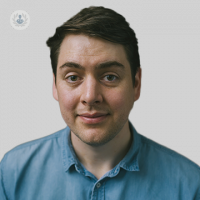Understanding adult ADHD Symptoms
Written by:If you find yourself wondering whether your struggles with focus, attention, and impulsivity may be indicative of adult ADHD, you may want to look into it further with an expert.
Leading clinical psychologist Dr Justin Stephenson discusses adult ADHD symptoms in this article, helping you gain a better understanding of this often-misunderstood condition.

What are the key symptoms of adult ADHD?
Adults with ADHD may experience inattention symptoms like:
- difficulty concentrating;
- forgetfulness, and disorganisation.
Hyperactivity-impulsivity symptoms include:
- restlessness;
- impulsivity, and;
- difficulty waiting.
Can Adult ADHD develop later in life?
Yes, while often diagnosed in childhood, ADHD can persist into adulthood or go undiagnosed until later. Coping mechanisms developed in childhood may become less effective as adult responsibilities increase.
How does adult ADHD differ from ADHD in children?
Adults with ADHD may exhibit subtler hyperactivity, with inattention being more prominent. Challenges with time management, organisation, and relationships are common in adults.
What conditions can mimic adult ADHD?
Conditions such as anxiety, depression, and sleep disorders can share symptoms with adult ADHD.
Accurate diagnosis is crucial, emphasising the importance of consulting with a qualified psychiatrist.
What treatment options are available for adult ADHD?
Treatment often involves a multimodal approach, including psychoeducation, therapy, and medication:
- Psychoeducation helps in understanding ADHD and learning coping strategies.
- Therapy, such as cognitive-behavioural therapy (CBT) and coaching, addresses negative thought patterns.
- Medication options include stimulants and non-stimulants.
Is there an innovative treatment like Transcranial Magnetic Stimulation (TMS) for adult ADHD?
Yes, in recent years, SMART TMS has gained attention. This non-invasive procedure uses magnetic fields to stimulate specific brain areas associated with ADHD symptoms. It is considered when other treatments are ineffective or not well-tolerated.
Can lifestyle changes help manage adult ADHD?
Yes, in addition to professional treatment, lifestyle modifications can be beneficial. Regular exercise improves focus and reduces restlessness, a balanced diet positively impacts brain function, and ensuring adequate sleep is crucial for cognitive functioning.
If you’re concerned whether you have adult ADHD, arrange a consultation with Dr Stephenson via his Top Doctors profile, today.


